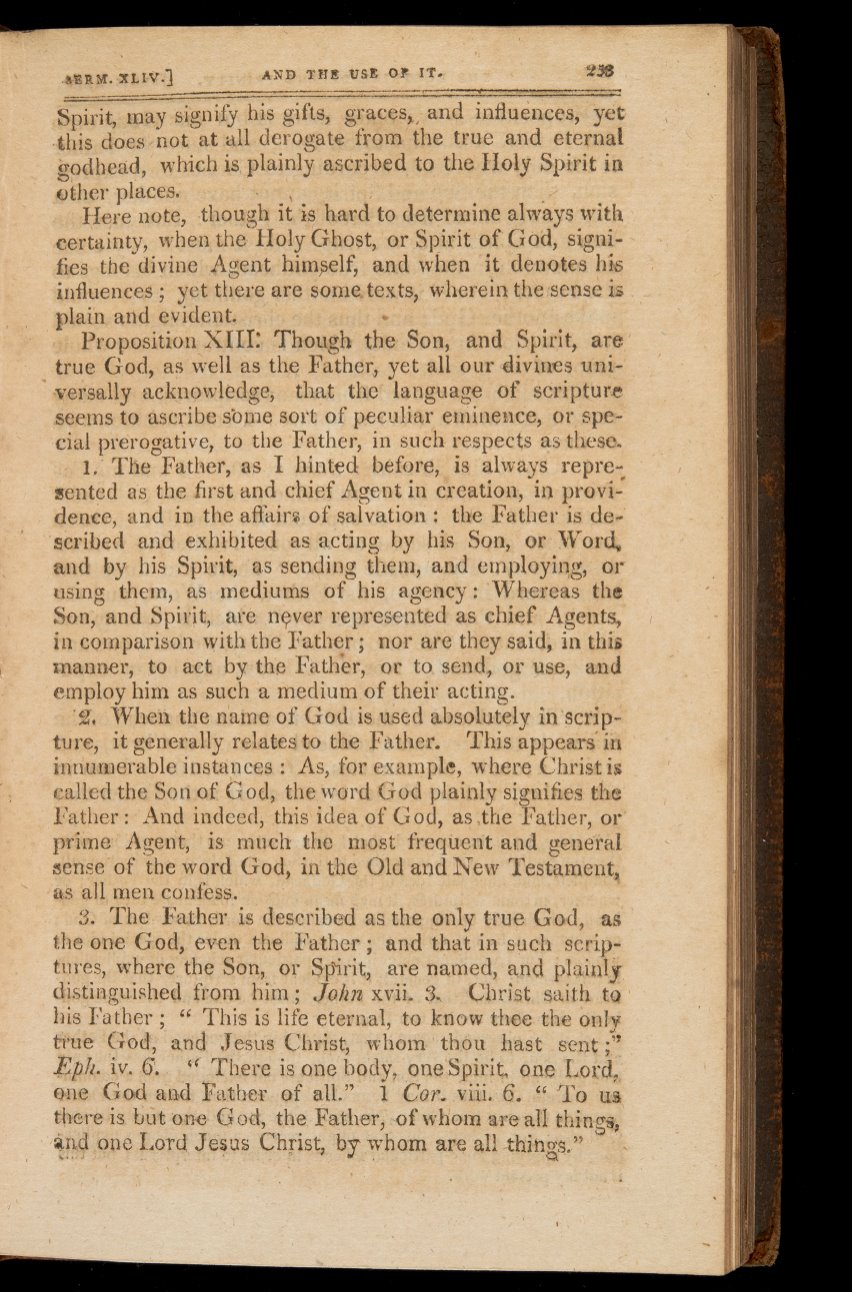

aSAM. Xa.IV.3
AND
THE
USE OT
IT.
296
Spirit,
may signify his
gifts,
graces,,
and
influences,
yet
-this
does
not
at
all
derogate
from
the true and
eternal
godhead,
which
is
plainly
ascribed
to
the Holy Spirit
in
other
places.
Here
note,
though
it
is
hard
to
determine
always with
certainty,
when
the Holy Ghost,
or
Spirit
of
God,
signi-
fies
the divine
Agent
himself,
and
when
it
denotes
his
influences
;
yet there
are
some.
texts, wherein the sense
is
plain and evident.
Proposition
XIII:
Though the
Son,
and Spirit,
are
true
God,
as well as
the
Father, yet
all
our
divines
uni-
versally acknowledge,
that
the language
of
scripture
seems to ascribe söme
sort
of
peculiar
eminence,
or spe-
cial prerogative,
to
the
Father,
in
such respects
as
these.
i, The
Father,
as
I
hinted
before,
is
always repro-,
rented
as
the
first
and chief Agent
in
creation,
in
provi-
dence,
and
in
the
affairs
of
salvation
;
the
Father
is
de-
scribed and exhibited
as
acting
by his
Son,
or Word,
and
by
his
Spirit,
as
sending them,
and
employing,
or
using them, as
mediums
of
his
agency
:
Whereas the
Son,
and Spirit, are never
represented
as
chief
Agents,
in comparison
with
the
Father;
nor are
they said, in this
manner, to
act
by
the
Father, or
to send,
or
use,
and
employ
him as
such
a
medium
of
their acting.
When
the name
of God
is
used absolutely in
scrip-
ture,
it
generally relates
to
the
Father. This
appears'
in
innumerable instances
:
As,
for example, where
Christ
is
called the
Son
of God, the
word
God
plainly
signifies
the
Father:
And indeed,
this
idea
of
God,
as ,the
Father, or
prime
Agent,
is
much the most
frequent and general
sense
of
the word
God,
in
the
Old
and New Testament,
as all men confess.
3.
The Father
is
described
as
the only
true God, as
the one
God,
even the
Father
;
and
that
in such
scrip-
tures, where the
Son,
or
Spirit,
are
named,
and plainly
distinguished from
him
;
John
xvii.
3.
Christ saith
to
his
Father
;
"
This
is
life
eternal,
to know
thee
the only
true
God,
and
Jesus
Christ, whom
thou hast
sent
;"
Eplr.
iv.
6.
"
There
is
one body, one Spirit, one Lord.
one
God
and
Father of
all."
1
Cor.
viii.
6.
"
To
us'
there
is
but
one
God, the Father,
of
whom
are
all things,
aad
one
Lord
Jesus
Christ, by whom are all
-
thins."

















